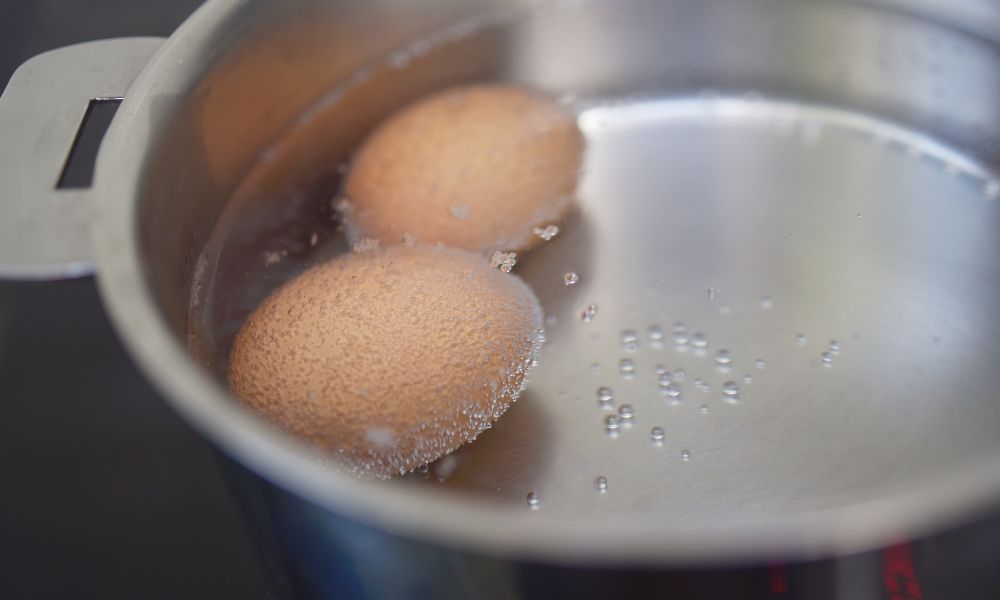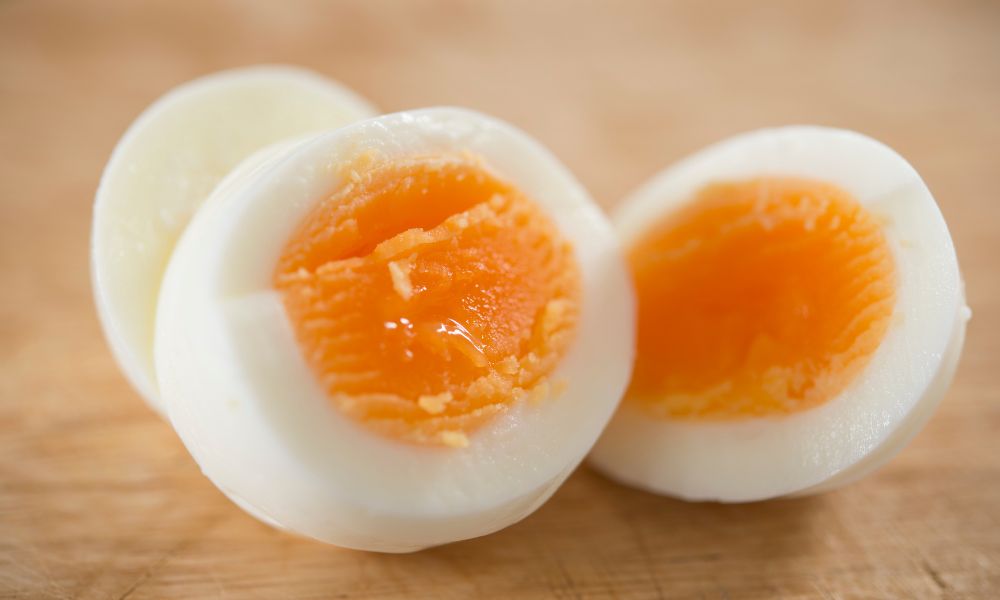The Ultimate Guide to Storing Cooked Eggs in the Fridge | Best PracticesEggs are versatile, nutritious, and delicious, a staple in many homes worldwide. However, storing cooked eggs in the fridge isn’t always straightforward, which raises common concerns about their shelf life and safe consumption.
As an egg enthusiast, I’ve embarked on a culinary journey to investigate how long cooked eggs are good for in the fridge and the best practices for their safe storage.
How Long Are Cooked Eggs Good for in the Fridge?

According to a comprehensive article from Healthline, cooked eggs (such as hard-boiled) can be safely stored in the fridge for about one week. Factors that can influence this shelf life include the freshness of the eggs before cooking and the storage conditions within your fridge. But, remember, these are average figures; depending on the circumstances, your eggs might last a bit longer or spoil a bit quicker.
Now, you might wonder how to determine if cooked eggs have gone bad. In my experimentation, I’ve found that spoiled eggs will often have a foul smell, a chalky or slimy texture, or visible mold. It’s essential to trust your senses and discard any egg if you’re unsure about its freshness.
I want to note that the storage duration for cooked eggs does differ from raw eggs. A previous experiment I conducted about how long fresh eggs last provides more insight into this topic.
Safe Storage Practices
When it comes to proper storage of cooked eggs, a few simple steps can go a long way in extending their shelf life. Here are the procedures that have worked well for me:
- Cool Down: Allow the eggs to cool completely before storing them in the fridge.
- Use Airtight Containers: To maintain freshness, store your cooked eggs in airtight containers. If those aren’t available, wrapping each egg tightly in plastic wrap or aluminum foil can work in a pinch.
- Fridge Organization: Keep the eggs in the main body of the fridge rather than the door, as temperature fluctuations can occur when the fridge door is frequently opened.
A more detailed guide on how to keep cooked eggs fresh is available on my website.
Reheating Cooked Eggs

Next on our journey is the task of reheating cooked eggs. Whether on a stovetop, in a microwave, or an oven, there are several ways to warm up your refrigerated eggs while maintaining their taste and texture.
However, when reheating, safety precautions should always be taken into consideration. For instance, eggs should be heated until they reach an internal temperature of 165°F to ensure any potential bacteria are killed. To preserve their taste and texture during reheating, heat them gradually and avoid using high temperatures. Overheating can make the eggs tough and rubbery, which I learned the hard way during one of my cooking misadventures.
To dive deeper into the art of reheating, check out this article on proper reheating of cooked eggs on my website.
Conclusion
Understanding how long cooked eggs are good for in the fridge and the appropriate ways to store and reheat them can maximize their shelf life and maintain their delicious taste. Following the best storage practices for cooked eggs, like cooling them before storage, using airtight containers, and keeping them in the main body of the fridge can significantly help prolong their freshness.
Remember, safety should always come first when handling food. Whether you’re reheating on a stovetop, microwave, or an oven, ensure to heat your eggs to a safe temperature. And if you’re ever in doubt about an egg’s freshness, it’s always better to be safe than sorry — when in doubt, throw it out.